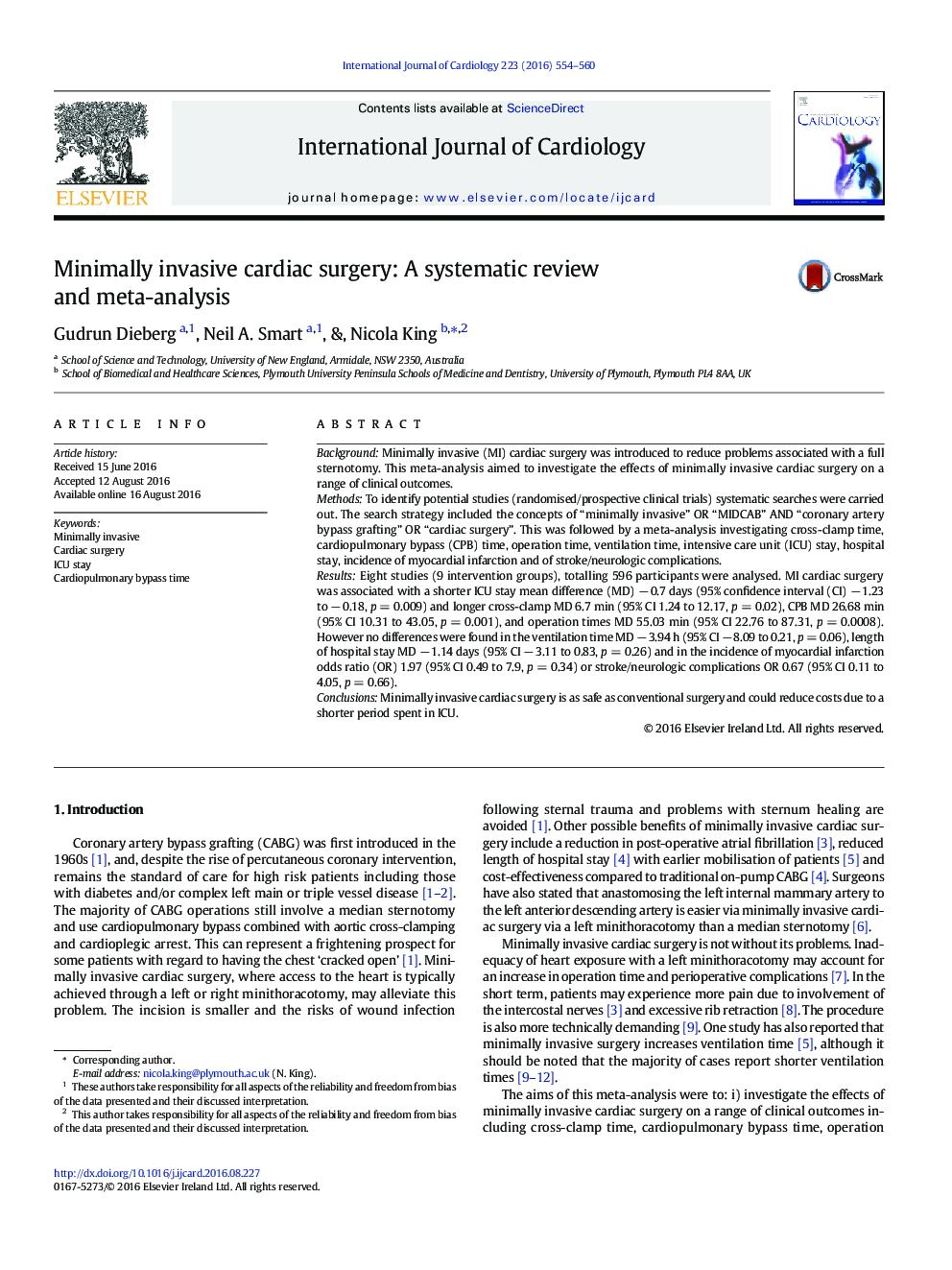| Article ID | Journal | Published Year | Pages | File Type |
|---|---|---|---|---|
| 5963186 | International Journal of Cardiology | 2016 | 7 Pages |
BackgroundMinimally invasive (MI) cardiac surgery was introduced to reduce problems associated with a full sternotomy. This meta-analysis aimed to investigate the effects of minimally invasive cardiac surgery on a range of clinical outcomes.MethodsTo identify potential studies (randomised/prospective clinical trials) systematic searches were carried out. The search strategy included the concepts of “minimally invasive” OR “MIDCAB” AND “coronary artery bypass grafting” OR “cardiac surgery”. This was followed by a meta-analysis investigating cross-clamp time, cardiopulmonary bypass (CPB) time, operation time, ventilation time, intensive care unit (ICU) stay, hospital stay, incidence of myocardial infarction and of stroke/neurologic complications.ResultsEight studies (9 intervention groups), totalling 596 participants were analysed. MI cardiac surgery was associated with a shorter ICU stay mean difference (MD) â 0.7 days (95% confidence interval (CI) â 1.23 to â 0.18, p = 0.009) and longer cross-clamp MD 6.7 min (95% CI 1.24 to 12.17, p = 0.02), CPB MD 26.68 min (95% CI 10.31 to 43.05, p = 0.001), and operation times MD 55.03 min (95% CI 22.76 to 87.31, p = 0.0008). However no differences were found in the ventilation time MD â 3.94 h (95% CI â 8.09 to 0.21, p = 0.06), length of hospital stay MD â 1.14 days (95% CI â 3.11 to 0.83, p = 0.26) and in the incidence of myocardial infarction odds ratio (OR) 1.97 (95% CI 0.49 to 7.9, p = 0.34) or stroke/neurologic complications OR 0.67 (95% CI 0.11 to 4.05, p = 0.66).ConclusionsMinimally invasive cardiac surgery is as safe as conventional surgery and could reduce costs due to a shorter period spent in ICU.
